Speaker
Description
Olive trees usually have an alternate bearing in their fruit production. This phenomenon consists of alternating high and low fruit productivity between consecutive years and, usually, it is caused by the high demand for nutrients that the plants require to fructify. This biannual cycle constitutes a major economic problem for olive growers and, consequently, a lot of interest is put in elaborating forecasts models of the annual olive production.
In Malaga (southern Spain), from 1992 to 2010 there was a strong correlation between the annual pollen integral and the annual olive fruit production but, since 2011, this correlation was no longer detected. Most forecast models elaborated for predicting olive production are based on the pollen integrals detected during the spring prior to harvesting, but it is expected that these models diminish their accuracy rates due to these changes.
In this work, we studied the trends in the alternate bearing followed by both the olive airborne pollen and the fruit production, as well as the main environmental and human factors that could be conditioning them.
In fact, we observed that the implementation of different agricultural techniques together with climate change could be the reasons behind the interruption in the pollen alternate bearing. These variables should be integrated into the prediction models of olive production in order to maintain their accuracy rates.

